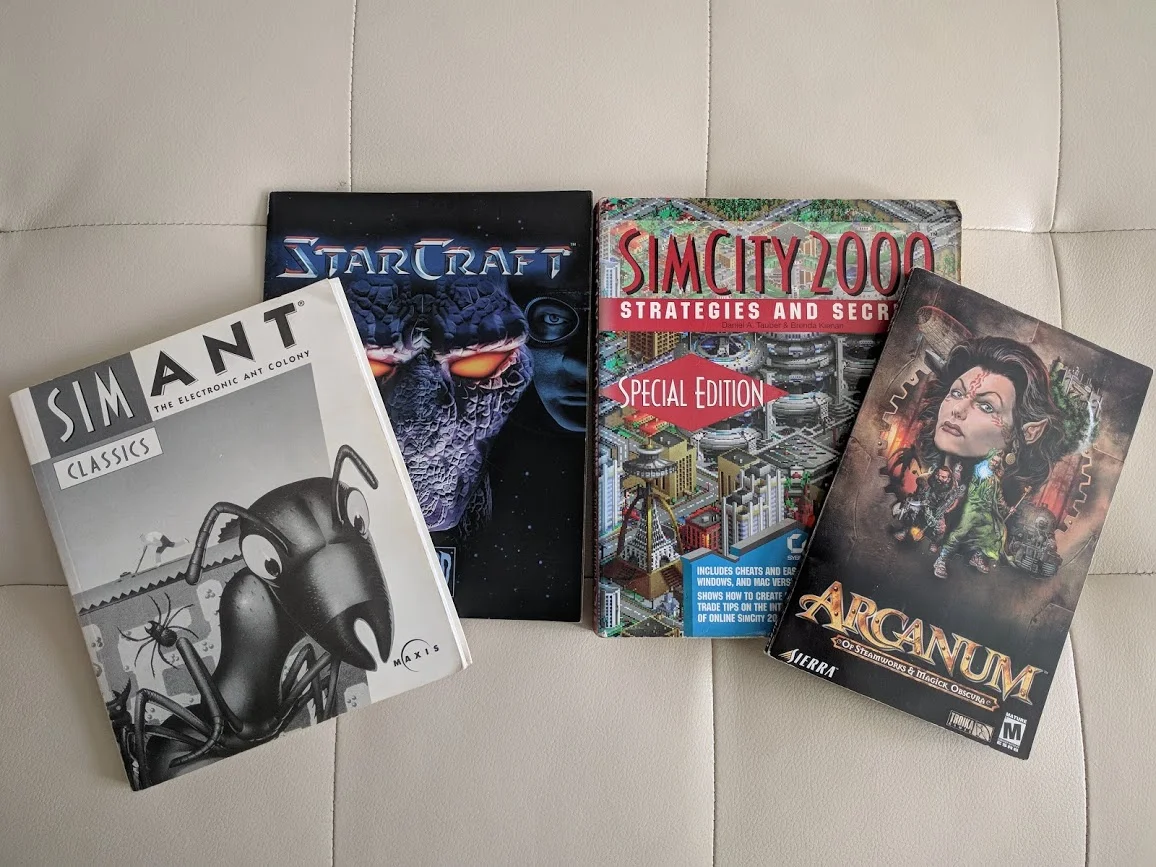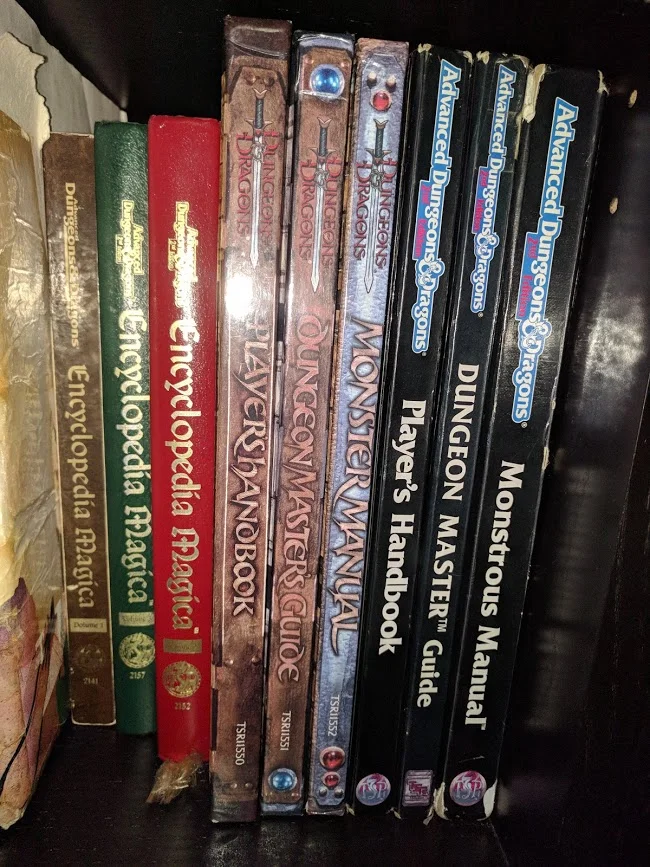Reading While Young... and a Gamer
Having children read is such an important aspect of their development - I honestly think that cannot be stated enough. There are so many possible sources of books for children of all ages... but we're not going to focus so much on what one should have their child read growing up - that would be an entirely separate post. No, today I'll talk about gaming!
Okay, not directly, but I will share a bit of personal history about how my game-playing habits actually fed my desire to read books, and how those very games have influenced me as an individual and as a writer.
Some context: For my generation, video gaming was several years past the Video Game Crash of 1983 and was, in large part because of Nintendo, becoming a dominant force in the lives of millions of impressionable children - myself included. I was first introduced to Mario and Luigi during Christmas of 1988, when I was five years old and had found the Nintendo Entertainment System behind the large, wood-framed television set in my living room. Around the same time, my father had a heavy, beige IBM computer in the basement which ran programs off of 5¼'' floppy disks - a computer he was happy to teach me how to use.
Between the NES and seeing the power of computing at such a young age made me realize, at least on a subconscious level, that reading would be a critical part of understanding how to play with these devices. Especially the computer!
As the years progressed, my parents purchased a wide variety of games for me, but some of them required a decent amount of reading comprehension to make any sort of progress, such as Deja Vu, Nightshade, and Final Fantasy. Games that had their own 8-bit worlds to explore and sink many hours trying to figure out who you were, fighting crime in Metro City, or saving the world as the Light Warriors.
In addition to playing text-heavy games, I subscribed to Nintendo Power, a magazine that delivered all kinds of Nintendo game-related news, strategies, and the occasional comic strip on a monthly basis. Whenever I came home from school to find a fresh copy of the magazine on my bed I would spend the next half hour tearing through its contents.
All of that was just involving Nintendo - at the same time, I was not only becoming acquainted with the world of personal computers (Lotus 1-2-3 will forever be burned into my memory as my first-ever spreadsheet program experience) but also the games that could be played on them. Playing games on PCs was a complete different affair.
Before video game companies stripped away physical booklets and, in some cases, novella-length stories, you could purchase a PC game from a store like Electronics Boutique and expect a whole host of material to greet you inside the box.
As a PC gamer growing up, many games came with a massive manual, in many cases spanning over a hundred pages. Though you didn't have to read them - in many cases I just installed the games and dived right in, only reading enough to ensure I installed it properly - I spent extra time a few hours after playing to read through the remaining content. From the backstories shared in the StarCraft and Arcanum manuals to the details of planetary evolution in the SimEarth book, one could expect a decent amount of reading time out of a game purchase if you wanted.
And I always wanted.
As a nine-year-old, these manuals were no joke in terms of the sheer amount of content they provided. If there is anything I can say when describing the difference between game publishers today versus those from twenty-five years ago, it's that they did not treat you like a kid at all when they designed their instruction manuals. Just look at the gallery below:






In many cases, adventure and role-playing games came with a lot of backstory within these manuals - dozens and dozens of pages of just fictional content that was such a joy to read and really helped immerse you into the worlds that you would interact with. In the case of the Sim games, they used to have text book-quality content added to the backs of their manuals, providing incredible details on the subject matter their games covered. With the Civilization series, their manuals provided so much detail for every facet of their complex games, yet the way in which that information was presented proved to be engaging and easy to understand, though pulling out a dictionary to confirm what a word meant wasn't uncommon in my household.
Of course, not every game had book-length manuals included with them - I just happened to enjoy the kind of games that usually doled out such reading material.
Another kind of gaming I spent years of my life playing was Dungeons & Dragons, which was first introduced to me during a summer at Discovery Day Camp in 1994. I don't remember the counselor's name, but he led my first-ever campaign along with seven other boys where I do remember stabbing one of my friends in the back with a dagger for stealing my loot from a downed goblin.
In 1998 I ran my first - and only - D&D campaign as Dungeon Master, but to be fair, that campaign did run a little over three years. See that ripped folder to the far-left the the brown book? It contains all the material from that very lengthy campaign.
Finally, there were the many books I read that had nothing to do with video games. The Berenstain Bears, Dr. Seuss, Charlotte's Web, The Trumpet of the Swan, Where the Sidewalk Ends - these were just a few that I remember fondly off the top of my head, along with the few books that are miraculously still in my possession today.
The books that I still have from my childhood I've passed down to my daughter for her to read, though some of them I've already read to her as bedtime stories.
“You know what’s really exciting about video games is you don’t just interact with the game physically — you’re not just moving your hand on a joystick, but you’re asked to interact with the game psychologically and emotionally as well. You’re not just watching the characters on screen; you’re becoming those characters.”
Reading is an essential part of any writer's toolbox for success - you have to read in order to write, as they say. This usually means reading books - lots of books - which is a very good thing as that will help you understand what works and what doesn't in the writing industry. However, that passion for reading came from somewhere.
For me, it was a combination of being encouraged by my parents to read as well as being able to express my own creativity whenever the call was heard. During elementary school, that was in the form of creating a series of picture books titled "The Blob-Busters" and drawing my interpretations of city streets and the urban world around me. As I got older I funneled that energy towards building cities in SimCity, leading my empire from the Stone Age to the Space Age in Civilization II, and following the epic journeys of some of my favorite characters in role-playing games like Final Fantasy III, Illusion of Gaia, and Chrono Trigger.
It is without question that gaming had a critical role in my creative development over the years. The way games, from the simple Tetris to the fantasy epic Baldur's Gate, have molded my way of telling a story compliments the library of books that have graced my eyes and my heart.
I look forward to eventually sharing a story with all of you that reflects the end-result of both mediums co-mingling in my life.






